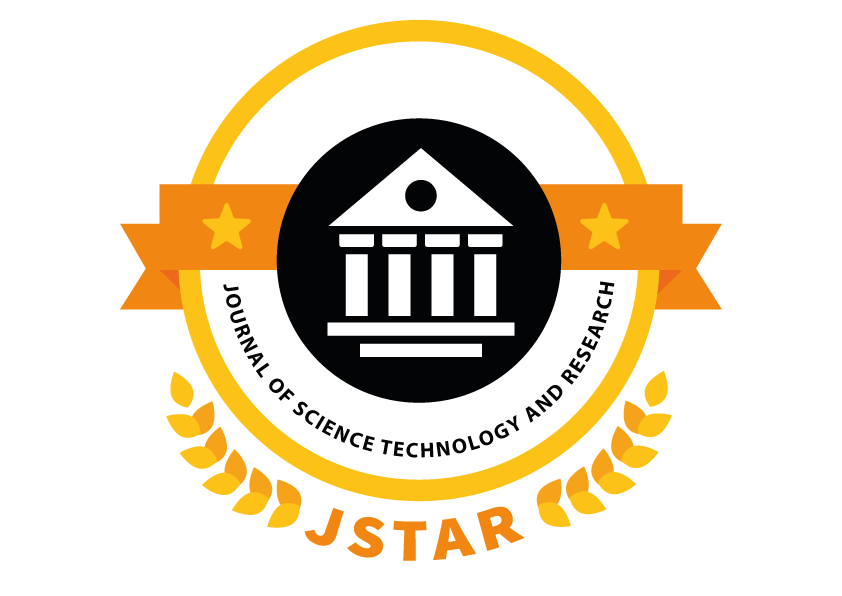Author:
Abdirezak Beyene , BerhanieGetnet , Alemu LemmaPublished in
Journal of Science Technology and Research( Volume , Issue )
1. Vissoci JR VS, El-Gabri D, de Oliveira LP, Mvungi M, Mmbaga BT, Haglund M, Staton C.
Cross-cultural adaptation and psychometric properties of the Kessler Scale of Psychological
Distress to a traumatic brain injury population in Swahili and the Tanzanian Setting. . Health and
quality of life outcomes. 2018 Dec;16(1):1-8.
2. S. Barua. “Understanding Coronanomics: the economic implications of the coronavirus
(COVID-19) pandemic,”. SSRN Electronic Journal. 2020.
3. Organization WH. World Health Organization coronavirus disease 2019 (COVID-19)
situation report Available: https://www.who.int/docs/defaultsource/coronaviruse/situationreports/20200411-sitrep-82-covid-19.
4. WHO. COVID-19 weekly epidemiological update, 19 January 2021.
5. institute Eh. Coronavirus-Ethiopia: COVID-19 update(29 January 2021).
https://wwwafricanewscom/2021/01/30/coronavirus-ethiopia-covid-19-update-29-january2021//. 2021.
6. Kristian G, Andersen K, Rambaut A. The proximal origin of SARS-CoV-2. Nat Med.
2020;26:452.
7. Organization WH. Modes of transmission of virus causing COVID-19: implications for IPC
precaution recommendations: scientific brief, 27 March 2020. World Health Organization, 2020.
8. Xiang Y-T, Yang Y, Li W, Zhang L, Zhang Q, Cheung T, et al. Timely mental health care for
the 2019 novel coronavirus outbreak is urgently needed. The Lancet Psychiatry. 2020;7(3):228-
9.
ABSTRACT:
The outbreak of Coronavirus Disease 2019 (COVID-19) caused a global health crisis, resulting in widespread fatalities and mental health challenges. Healthcare professionals, who played a frontline role in managing COVID-19 patients, faced an increased risk of developing psychological distress due to the highly infectious nature of the virus and constant exposure to traumatic situations. The limited availability of personal protective equipment (PPE) further worsened their mental health conditions. In Ethiopia, few studies have assessed the psychological distress and associated factors among healthcare workers during the pandemic. Understanding the mental health impact of COVID-19 on healthcare professionals is crucial for effective intervention and policy response. This study aims to investigate the prevalence of psychological distress and explore the associated factors contributing to mental health issues among healthcare workers during the COVID-19 crisis. These findings will help in designing strategies to support healthcare professionals in current and future public health emergencies.
INTRODUCTION:
Psychological distress refers to a state of emotional suffering typically characterized by symptoms of anxiety and depression. During the COVID-19 pandemic, healthcare professionals experienced high levels of psychological distress Associated Factors during COVID-19 due to overwhelming workloads, infection risk, and limited protective resources. The coronavirus, officially named SARS-CoV-2, first emerged in Wuhan, China in December 2019 and rapidly spread worldwide, leading to a major public health crisis. In Ethiopia, the virus caused thousands of infections and deaths, placing immense pressure on health institutions. Healthcare workers became both victims and vectors of transmission due to close patient contact and inadequate infection control measures. The pandemic not only disrupted global economies but also severely impacted the mental health of frontline workers. Identifying the associated factors contributing to psychological distress among healthcare professionals is essential for implementing preventive strategies. This introduction highlights the urgent need to study mental health and psychological distress during COVID-19, especially in resource-limited settings like Ethiopia.

